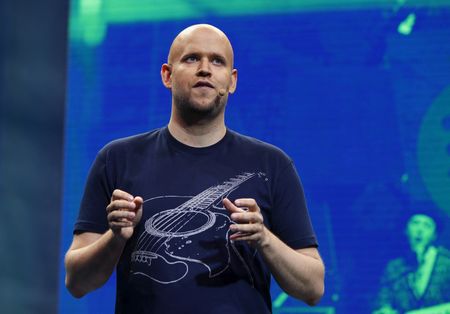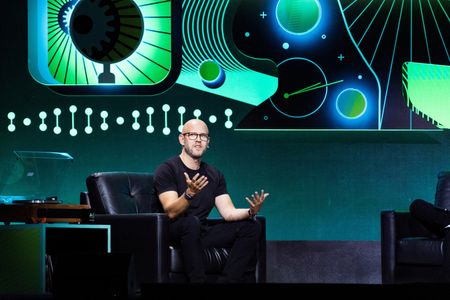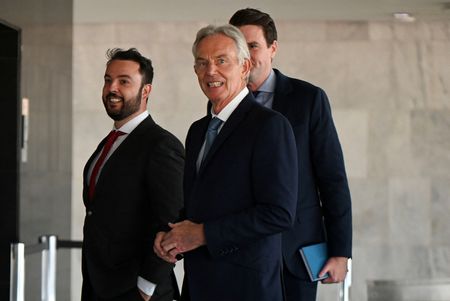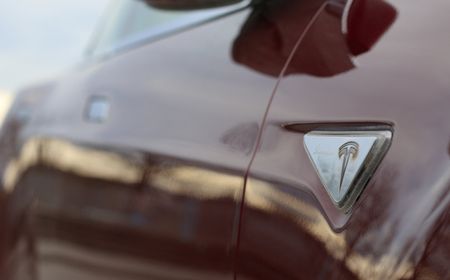By Supantha Mukherjee
STOCKHOLM (Reuters) -When Daniel Ek founded Spotify in 2006, a viable music product was a “moon shot.” The global music industry was struggling with years of declining sales, online music piracy was rampant, and services like Apple’s iTunes were pricey.
Ek believed if access to music was as easy as turning on a tap – in a way that was legal and fair to artists – users would come. The key was streaming, not downloads, an idea that revolutionized the industry and catapulted Spotify into a $140 billion music powerhouse.
The serial entrepreneur, who announced on Tuesday he will step down as Spotify’s CEO next year, has his sights set on building the next Spotify — albeit not in the music industry. Ek wants to focus on technology that drives “progress in areas that matter most to society.”
“I am often asked, ‘How do we build more Spotifys out of Europe?'” Ek said in a note to Spotify employees on Tuesday. “That’s why several years ago, I announced my intention to help create more of these supercompanies – companies that are developing new technologies to tackle some of the biggest challenges of our time.”
Ek has pledged to invest through his venture capital firm Prima Materia 1 billion euros ($1.18 billion) of his own wealth in European “moonshot” projects — early-stage startups in deep technology, AI, and climate and health tech.
The billionaire’s motto is to not just invest, but to build businesses for the long term, driven by his belief that global champions can be built in Europe.
“I’ll share more about how I’ll put some of my builder energy there,” Ek said in the letter, referring to his outside engagements. “But today is about Spotify.”
WAR TECH SPARK ARTIST BACKLASH
In 2018, Ek co-founded Neko Health to help people stay healthy through preventive measures and early detection. The company has raised $325 million in total funding.
Ek has also invested in Germany’s Helsing, a maker of AI-controlled combat drones that has received over a billion dollars to become the largest defence startup in Europe, valued at $12 billion. This investment, though, has drawn criticism.
Music groups including Massive Attack, King Gizzard & the Lizard Wizard, and Hotline TNT removed their music from Spotify in protest.
“Music and weapons are not a good mix,” said Simon Dyson, analyst at Omdia. With some high-profile artists pulling their music from the service, “the sounds of protest are starting to become a distraction,” he said.
The company did not immediately respond to an email seeking comment.
Ek has weathered criticism before, from artist pay disputes to controversies around Spotify’s podcast investments. Supporters credit him with creating a legal model that drew listeners away from piracy, but critics note Spotify’s outsized influence on artists, which has often translated to inequity for independent labels.
FROM CODER TO MUSIC INDUSTRY DISRUPTOR
As a 23-year-old coder, Ek started Spotify to challenge online music piracy with a legal alternative, something even big music companies were struggling to address.
When he steps down from the CEO role next year to become executive chair, he will pass the reins of a music giant to his two long-trusted aides, Gustav Soderstrom and Alex Norstrom.
Ek, now 42, grew up in a Stockholm suburb and worked in several startups before teaming up with co-founder Martin Lorentzon to start Spotify.
His proposition – music funded by subscriptions and ads – helped redirect fans from piracy and pulled labels, artists and advertisers into a single marketplace.
Under Ek, Spotify pushed three big levers that reshaped the business: price-disciplined subscriptions, algorithmic playlists that could mint hits overnight, and an ever-widening content range, from podcasts to audiobooks.
Ek’s legacy is visible in Spotify user habits – a monthly fee that millions treat as a utility, playlists that serve as cultural gatekeepers, and podcasts that have become a daily routine.
A Netflix miniseries, “The Playlist”, showcased the birth and rise of Spotify in 2022.
Although Ek plans to focus on building other companies, he intends to stay involved in Spotify.
“I will be more involved than a typical U.S. chairman, so think of it a little bit like moving from a player to a coach,” Ek told journalists on Tuesday.
($1 = 0.8511 euros)
(Reporting by Supantha Mukherjee in Stockholm; Editing by Sayantani Ghosh and Lisa Shumaker)












